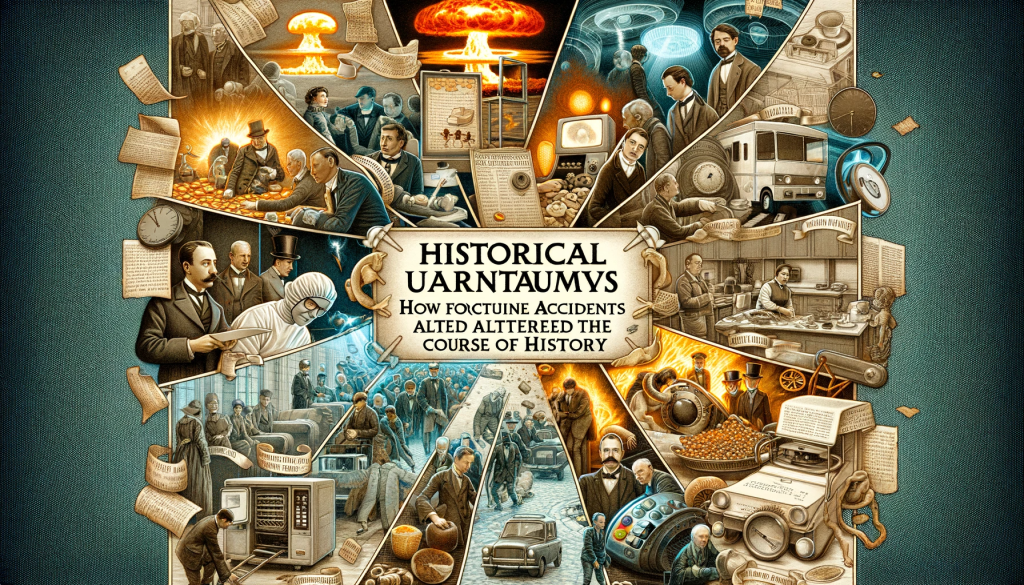Throughout history, a series of ‘fortunate accidents’ have unexpectedly altered the course of human events, leading to significant and often beneficial changes. These incidents, arising from serendipity, mistakes, or misjudgments, have had profound impacts on the world as we know it today.

Defining ‘Fortunate Accidents’ in Historical Context
In historical terms, a ‘fortunate accident’ refers to an unplanned event that, despite its unforeseen nature, results in a positive outcome. These incidents can range from discoveries made by mistake to strategic blunders that inadvertently lead to victory or progress.
Pivotal Moments in History Shaped by Chance
Many key moments in history were shaped by such accidents. For example, the discovery of penicillin by Alexander Fleming in 1928 was a stroke of luck. Fleming’s accidental contamination of a petri dish led to the discovery of the world’s first antibiotic, revolutionizing medical science and saving countless lives.
Similarly, the fall of the Berlin Wall in 1989, which marked the end of the Cold War, was precipitated by a miscommunicated announcement. This led to a massive, peaceful gathering of East and West Berliners at the wall, eventually leading to its fall and the reunification of Germany.
The Role of Serendipity in Scientific and Technological Advances
The realms of science and technology have also benefited greatly from fortunate accidents. The invention of the microwave oven, for instance, was the result of an accidental discovery by Percy Spencer, who noticed that radar waves melted the candy bar in his pocket. This led to the development of one of the most ubiquitous kitchen appliances in modern homes.
Historical Blunders Leading to Unexpected Successes
History is also replete with examples of errors that led to unexpected successes. During World War II, several strategic miscalculations resulted in turning points in the war’s outcome. Misjudgments by Axis powers, for example, allowed the Allies to gain crucial advantages.
Learning from History’s Unintended Lessons
These historical accidents teach us the importance of adaptability, resilience, and the ability to recognize and seize opportunities, even in seemingly negative situations. They also remind us that history is not always a linear progression but can be shaped by the most unexpected events.
Conclusion: Embracing the Unpredictability of History
‘Fortunate accidents’ in history serve as a testament to the unpredictable nature of human affairs. They remind us that sometimes the most significant changes and advancements come from the most unexpected places. As we look back at these moments, we learn to appreciate the complex tapestry of history, woven with strands of chance, serendipity, and unintended consequences.
In conclusion, understanding and acknowledging these ‘fortunate accidents’ in our past can provide us with perspective and insight into how we view and shape our future. These historical turnarounds not only changed the course of history but also offer lessons in the unpredictable yet hopeful nature of human progress.
